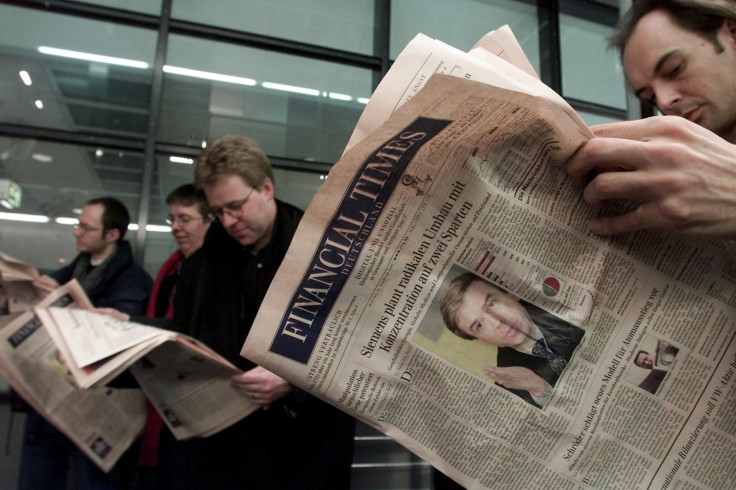Pearson and Axel Springer in talks over £1bn sale of Financial Times

Publishing giant Pearson has confirmed that it is in advanced discussions with German digital publisher Axel Springer to sell the Financial Times publication to a digital media corporation.
On 20 July, rumours about the possible sale surfaced as people familiar with the matter told media that Pearson was looking to sell its FT division for £1bn.
Internal discussions on the possible sale of the newspaper have been going on for years and gained momentum as Pearson chief executive John Fallon has expressed his desire to streamline the business and is keen to focus on the publisher's education division and its Penguin Random House.
Business news network Bloomberg and newswire Thomson Reuters had previously been coined as possible buyers of the FT. Even internet media hype Buzzfeed has been named as a possible player, but it has denied any interest in the salmon coloured paper.
The FT later confirmed Axel Springer, which owns die Welt and Bild, the two major newspapers in Germany, is in talks with Pearson about the deal.
Pearson is publishing its half year financial results on 24 July. In just minutes after the news, the publisher's share price jumped by 1.75%.
A Pearson spokesperson told IBTimes UK: "Pearson notes recent press speculation and confirms that it is in advanced discussions regarding the potential disposal of FT Group, although there is no certainty that the discussions will lead to a transaction. A further announcement will be made if and when appropriate."
IBTimes UK contacted the Financial Times Group but has not received comment at the time of publication.
Mostyn Goodwin, Partner at OC&C Strategy Consultants also said that the sale negotiations do not come as a surprise. He said: "The title's strong digital revenue and powerful international brand makes it a very attractive business for the right owner – and there are more logical owners than Pearson for what is an attractive, trophy asset."
Goodwin added that, wherever the FT would end up, it would have little to no impact on the publication. "Business as usual," he said.
© Copyright IBTimes 2025. All rights reserved.






















